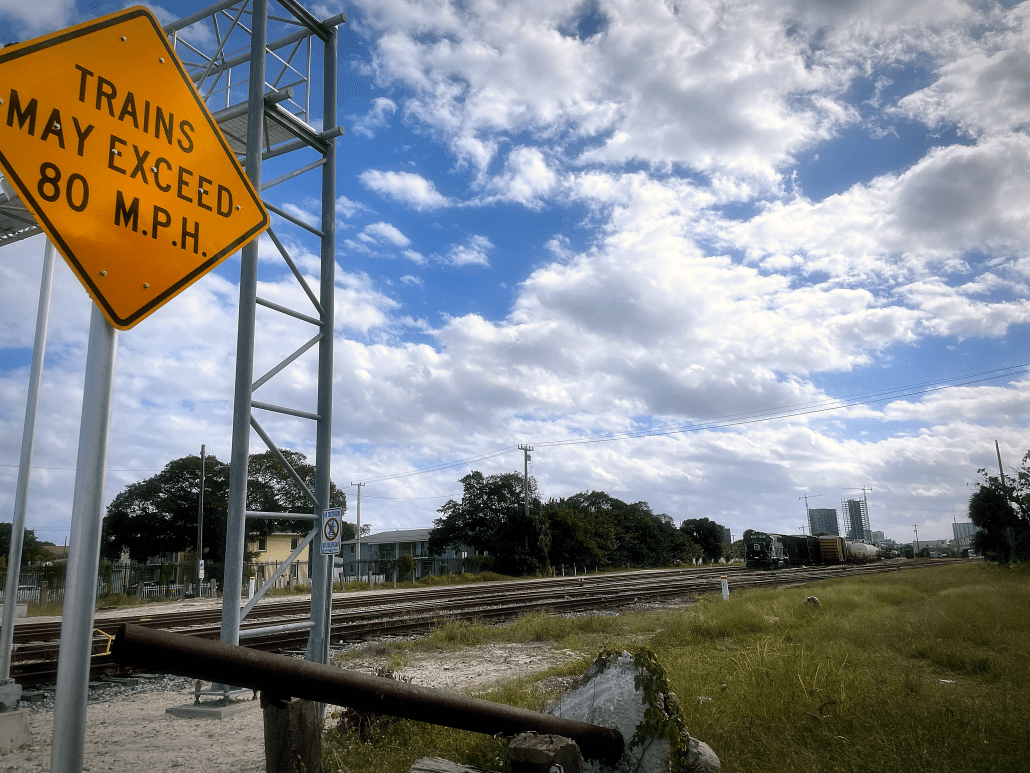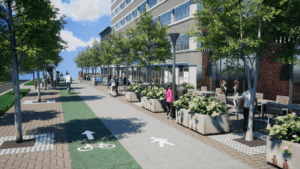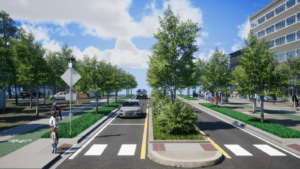Quiet Zones: The Sound of Silence & Safety in the Rail Environment
Since their creation, railroads have sounded horns and whistles in advance of grade crossings and as a safety precaution. In 2005, Federal Railway Administration (FRA) regulations took effect which required locomotive horns be sounded in advance of all public highway-rail crossings. The regulations also gave localities the option of silencing the train horns by creating “quiet zones.”
The FRA defines a quiet zone as the following:
“In a quiet zone, railroads have been directed to cease the routine sounding their horns when approaching public highway-rail grade crossings. Train horns may still be used in emergency situations or to comply with other Federal regulations or railroad operating rules. Localities desiring to establish a quiet zone are first required to mitigate the increased risk caused by the absence of a horn.”

In communities large and small, railways remain catalysts for economic growth and can inspire urban renewal. With an eye on balancing economic development with quality of life, health, and public safety, many localities are taking advantage of the opportunity to establish or maintain quiet zones.
One such locality is the City of West Palm Beach, located in southeast Florida. With two railway corridors running parallel through its downtown, West Palm Beach has two active quiet zones. DDEC’s founder Uyen Dang successfully submitted the City’s application for a quiet zone to the FRA 5 years ago. She is now guiding the City through the FRA’s customary review of the quiet zone’s effectiveness and safety.
As a part of this, DDEC is assisting the City with the creation of a railway safety public education campaign. Together, we are providing information to help communities make safe choices in the rail environment. Here are some key tips, to name a few:
• Always expect a train at each highway-rail intersection at any time.
• All train tracks are private property. Never walk on tracks. It’s illegal to trespass and highly dangerous.
• Trains have the right of way 100% of the time over emergency vehicles, cars, the police, and pedestrians.
The FRA can always rescind their approvals of quiet zones, should the agency determine they are not safe enough. DDEC is committed to assisting localities with maintaining their quiet zones, ensuring their safety, and to protecting the lives of those who they serve. To contact DDEC or to inquire about our ‘quiet zone’ services for your community, please dial (954) 406-7367 or email [email protected].


